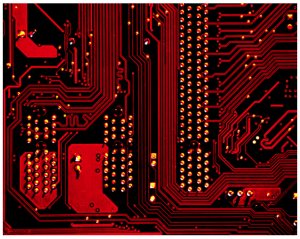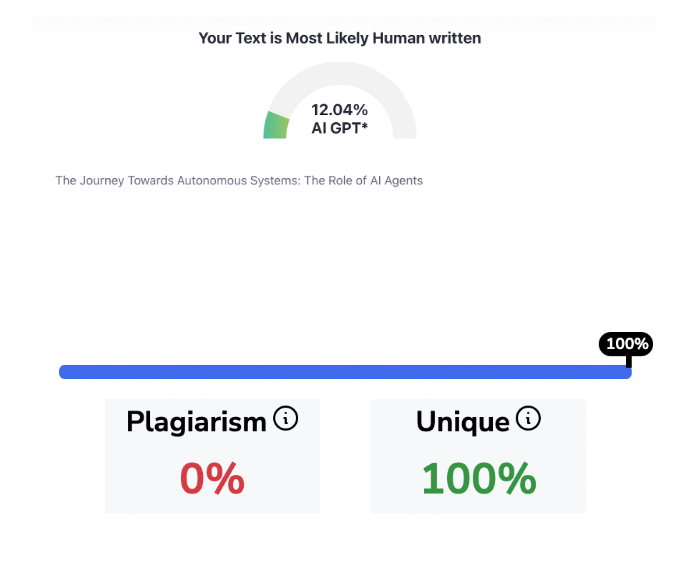By James Wilson
The unprecedented rate at which technology advances has given rise to the pursuit of creating autonomous systems – systems that don’t require human intervention. AI agents play a crucial role in this advancement. This article explores the impact AI agents have on various fields, delving more into their structure, functionality, and potential.
What Are AI Agents?
AI agents are algorithms or autonomous entities that perform tasks within a particular environment in order to perform their goals and objectives. Think of them as computer systems with some level of intelligence that allows them to interact with their environment. AI agents consist of various components:
An AI agent must contain a sensor to perceive their environment accurately. This can come in the form of cameras or microphones. Of course, this depends on the task needed to be performed. These agents come with a “brain”, also known as the processor. The sensors provide the data and it is up to the processor to make decisions.
These systems also contain an actuator, which allows the system to execute specific actions, like speaking, in a specific environment. Lastly, AI agents possess excellent memory with their ability to remember past experiences. Just like humans, they learn and adapt from them to improve decision-making.
Types of AI Agents
AI agents can be classified according to their function and complexity:
Simple Reflex Agents
As implied by its name, a simple reflex agent is quite simple – meaning that they respond to specific inputs without considering past experiences or overall goals. Simply put, they are based on rules.
Goal-Based Agents
These agents are more advanced than simple reflex agents as they always consider the overall goals together with past experiences. Goals can be as simple as completing a puzzle or as complex as a car knowing when to control its brakes thanks to the AI agents.
Model-Based Agents
A model-based agent is based on an internal model, like a robot navigation system using its map of the world to navigate through spaces.
The Role of AI Agents
With AI agents now playing a significant role in society, it’s expected that they have multiple real-world applications. From transportation to financial services, let’s get to know the role of AI agents across different domains:
Transportation
Many years ago, people predicted that our future would be ruled by flying cars. What many didn’t see coming was the advent of artificial intelligence in transportation. Self-driving cars use the power of AI to make real-time driving decisions. Eventually, it’s expected that this technology will be found in other vehicles such as boats and drones.
While the impact of AI on vehicles is quite obvious, it also has an impact on other facets of transportation, like traffic management. It analyzes data from sensors (i.e. traffic lights and cameras) to make improved decisions on managing traffic flow and reducing congestion.
Healthcare
AI agents have also found their role in healthcare – assisting in the diagnosis of diseases and creating treatment plans. They can also monitor vital signs, alerting healthcare professionals of any anomalies and ensuring that these are acted upon immediately.
Manufacturing
The field of manufacturing has blossomed thanks to the help of AI agents. With their ability to streamline processes from production to quality control, AI agents increase the operational efficiency of manufacturing companies.
Financial Services
The finance sector hasn’t ignored the power of AI as they’ve incorporated it into their services. Configurable analytical AI agents have their role in fraud detection and risk management. Moreover, these algorithms help with portfolio management and trading. With their power to analyze huge chunks of data, the use of AI in finance has a wide range of uses – changing the way the finance sector works forever.
Challenges
Of course, it’s important to look at both sides of the coin. AI agents also come with a host of challenges, some of which we’ll discuss down below:
Ethical Considerations
In fields such as healthcare, it’s important to define ethical boundaries. Because a patient’s condition can be a life-or-death situation, it’s important to use AI responsibly with human oversight. AI agents must adhere to standard treatment protocols to improve patient outcomes.
Security
Artificial intelligence also comes with security concerns. Because it has access to large data sets, an issue arises when malicious actors gain access to these systems through data breaches. And if they do, it can cause significant harm. Thus, it’s important to have proper security measures in place.
The Road Ahead: Future Prospects
The future remains bright for AI agents. Here’s why:
Integration With Emerging Technologies
Various technologies have sprung up in recent times – blockchain, IoT, and quantum computing, for instance. When you combine artificial intelligence with these technologies, you open new doors for innovation.
Sustainability and Environmental Concerns
With the climate crisis ongoing, it’s now more important than ever to make the switch to more sustainable practices. AI agents optimize energy consumption by creating intelligent energy grids that adjust energy distribution. This technology is also capable of controlling the heating and cooling of systems within buildings.
Final Thoughts
AI technology is indeed promising. With its applications across various industries, artificial intelligence is capable of bringing groundbreaking innovations such as self-driving vehicles and advanced fraud detection. While it’s still in its nascent stages, it’s already showing great signs of promise.
However, the use of AI agents also comes with some challenges – namely ethical considerations and security issues. To overcome these obstacles, it’s crucial to engage with diverse stakeholders: regulators, technologists, and the public. That way, AI agents can be powerful and innovative, while at the same time, aligned with societal values.
Author Bio:
 Meet James Wilson, your friendly neighborhood tech writer! With a heart full of compassion and a love for all things tech, James is on a mission to bridge the gap between technology and humanity. Through engaging and approachable writing, he demystifies the digital world, ensuring everyone can embrace the wonders of technology without feeling overwhelmed. When not typing away, James enjoys volunteering at local schools, sharing the joy of technology with the next generation.
Meet James Wilson, your friendly neighborhood tech writer! With a heart full of compassion and a love for all things tech, James is on a mission to bridge the gap between technology and humanity. Through engaging and approachable writing, he demystifies the digital world, ensuring everyone can embrace the wonders of technology without feeling overwhelmed. When not typing away, James enjoys volunteering at local schools, sharing the joy of technology with the next generation.
Share
AUG






About the Author:
I am a cybersecurity and IT instructor, cybersecurity analyst, pen-tester, trainer, and speaker. I am an owner of the WyzCo Group Inc. In addition to consulting on security products and services, I also conduct security audits, compliance audits, vulnerability assessments and penetration tests. I also teach Cybersecurity Awareness Training classes. I work as an information technology and cybersecurity instructor for several training and certification organizations. I have worked in corporate, military, government, and workforce development training environments I am a frequent speaker at professional conferences such as the Minnesota Bloggers Conference, Secure360 Security Conference in 2016, 2017, 2018, 2019, the (ISC)2 World Congress 2016, and the ISSA International Conference 2017, and many local community organizations, including Chambers of Commerce, SCORE, and several school districts. I have been blogging on cybersecurity since 2006 at http://wyzguyscybersecurity.com